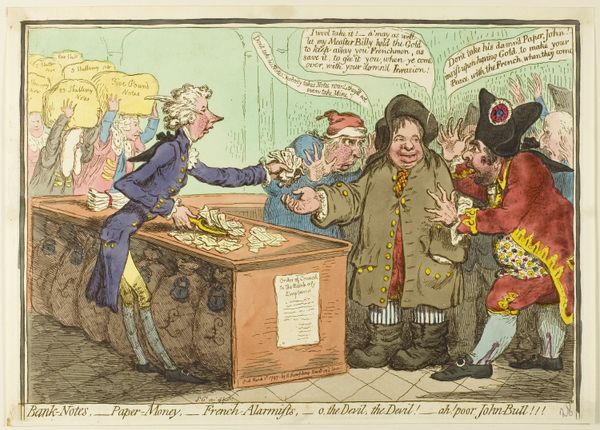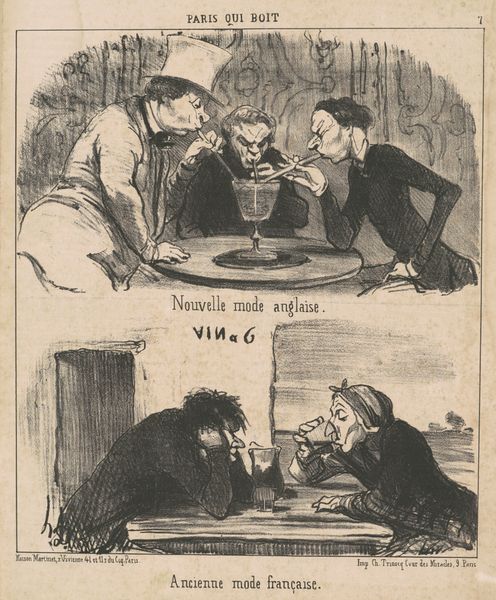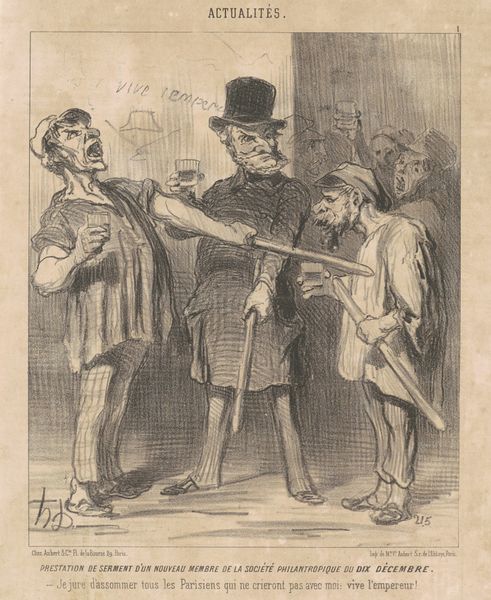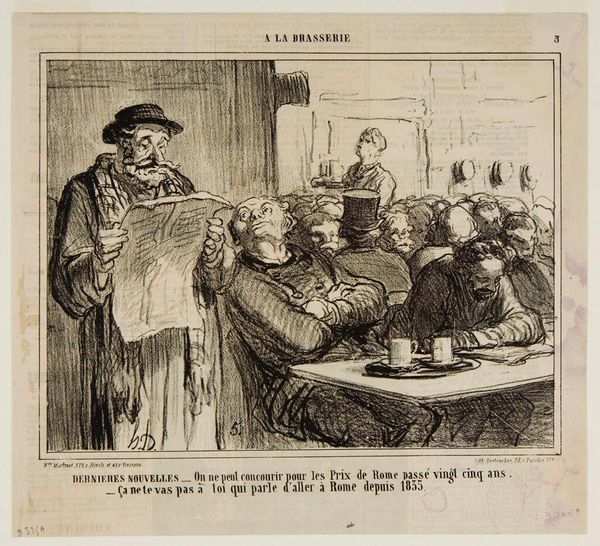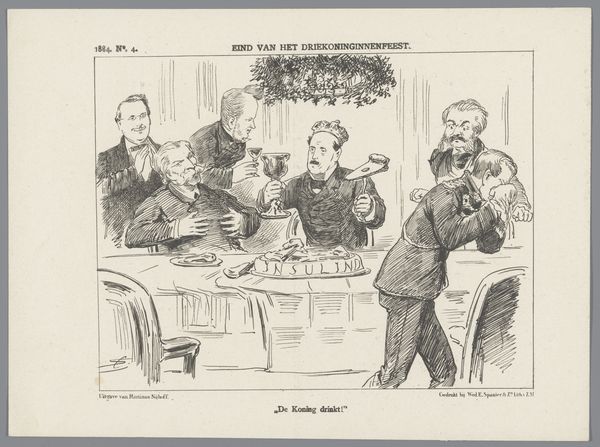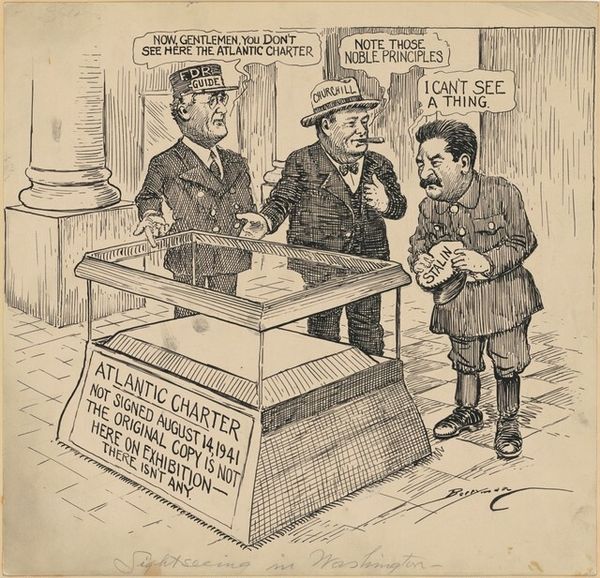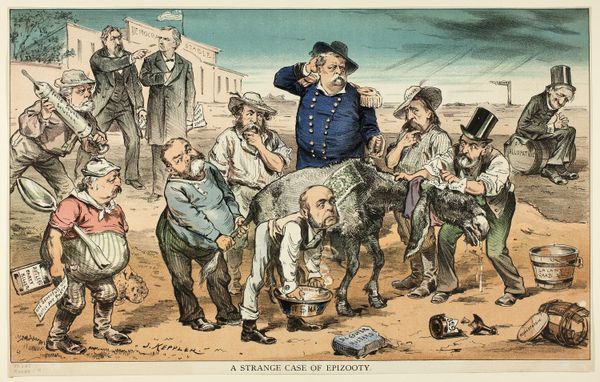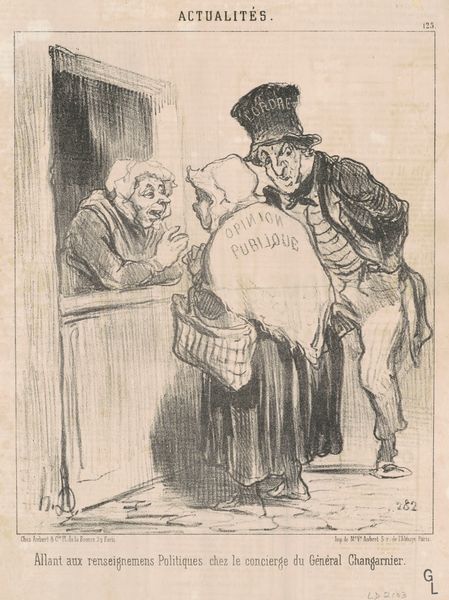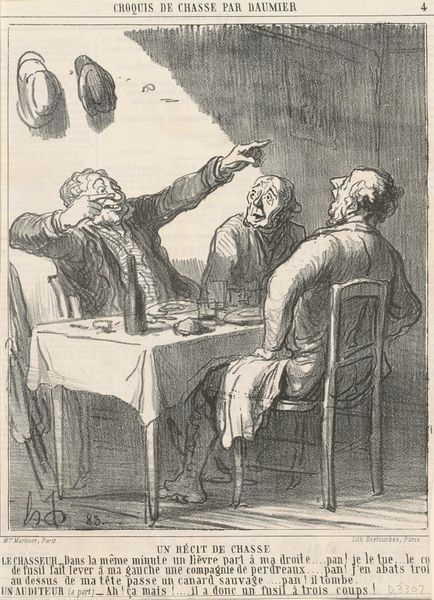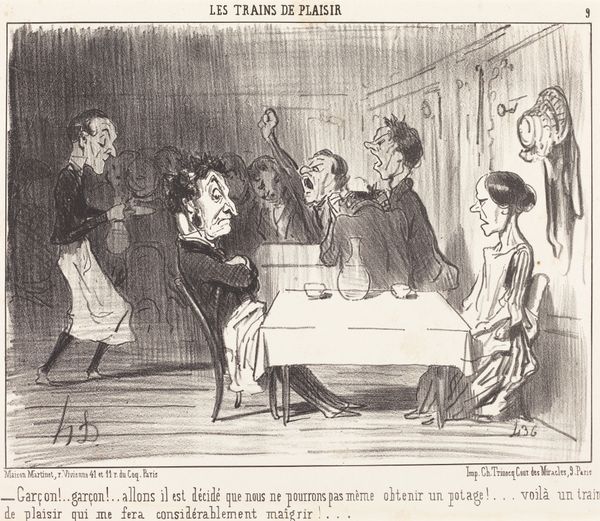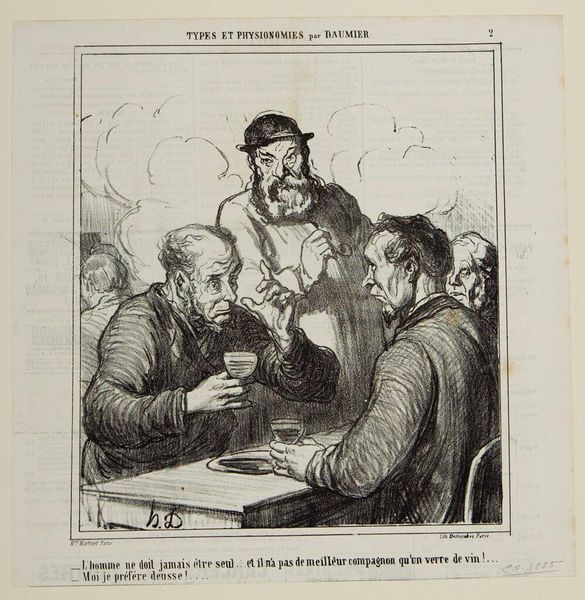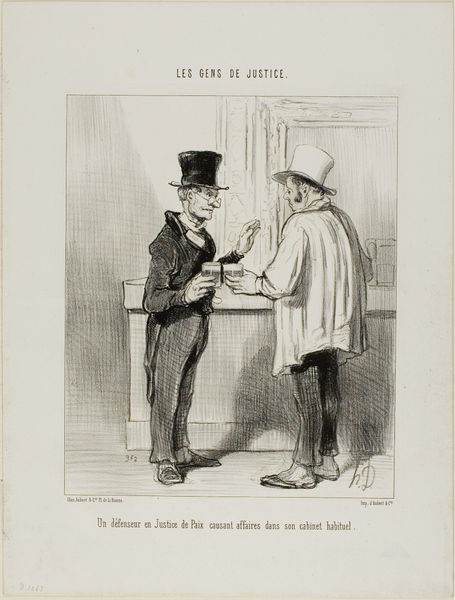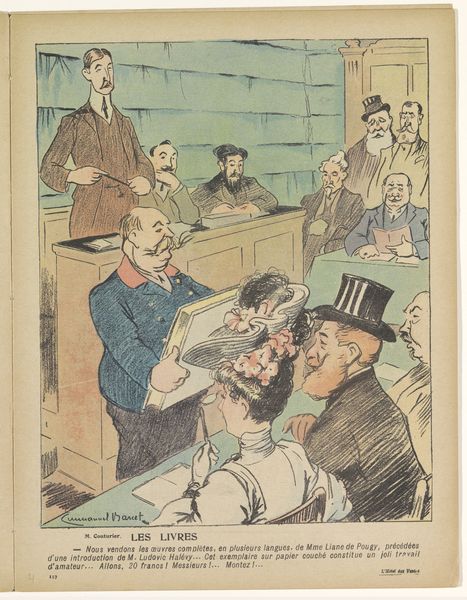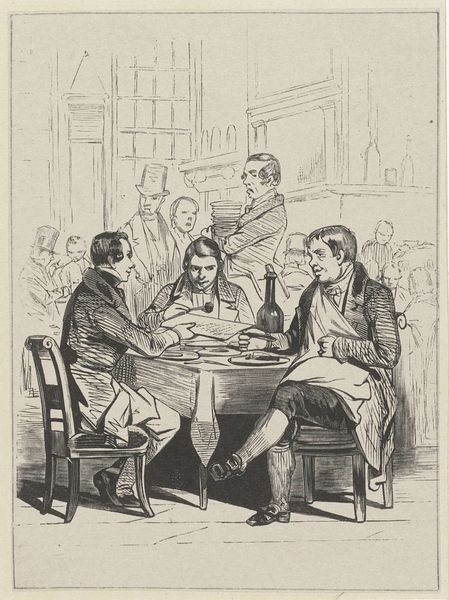
watercolor
#
portrait
#
caricature
#
caricature
#
watercolor
#
watercolour illustration
Copyright: Public Domain: Artvee
Editor: So this watercolor by Louis Glackens, "Oh, Teddy, dear Teddy, come home to us now," made around 1910, is certainly… pointed. It seems to show various world leaders and a forlorn elephant. What stands out to you in terms of its historical context? Curator: What's compelling here is thinking about the materiality and means of production that are informing the illustration itself and how the access dictates the audience. It was made as a cartoon printed in a widely-circulated illustrated paper. So it’s reproduced en masse. What sort of consumption do you think it facilitated, printed and disseminated as such? Editor: Well, that seems to lower the barrier to entry for people to engage with these figures. Before widespread print, this type of social critique was probably inaccessible to all but the elite. Curator: Exactly. Glackens’ cartoon creates an accessible point of entry, one mediated by caricature. How does that distort or sharpen political opinions? Are we really seeing "high art" here, or is it more political craft, skillfully made for quick consumption and commentary? Editor: The caricature seems crucial for the commentary. By exaggerating these leaders, the illustration simplifies the narrative. Is it aiming for nuanced discourse, or simply a strong reaction? Curator: And think about the watercolor. Its affordability compared to oil allowed Glackens to quickly produce many works. Speed and disposability become key elements. Where is the artistic labour going? Are they placed in production and less in posterity? Editor: I hadn't considered it in that light. This approach highlights that art doesn’t exist in a vacuum. The way it’s made and distributed matters just as much as the content itself. Thanks for sharing your thoughts. Curator: Likewise. Thinking through materiality and circulation helps us appreciate this piece not just as an image but as a product of its time.
Comments
No comments
Be the first to comment and join the conversation on the ultimate creative platform.
